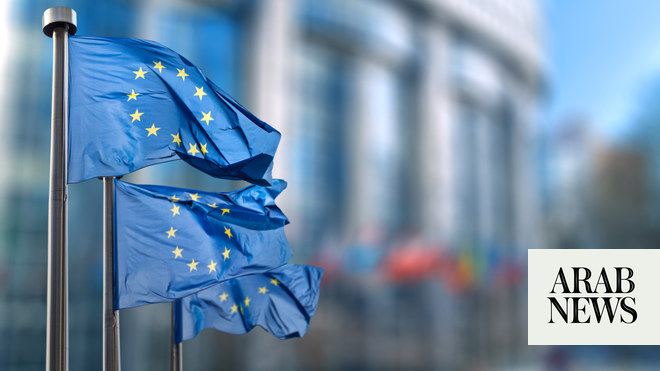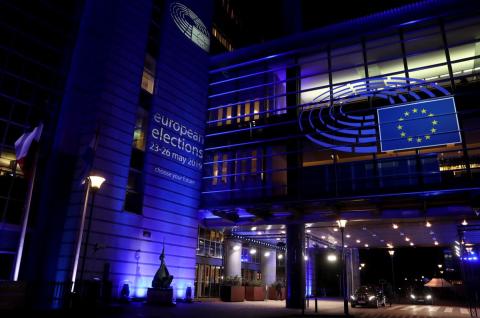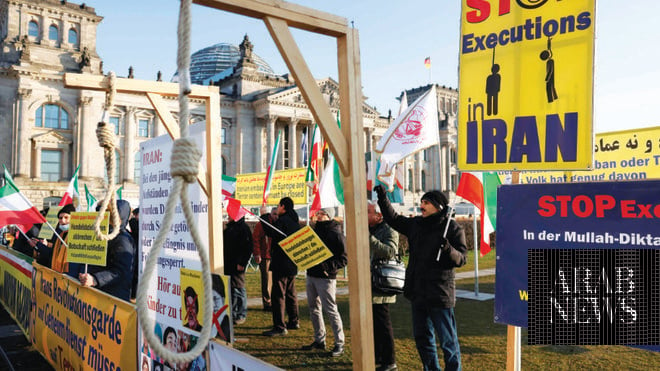
While some politicians continue to advocate in favor of the Islamic Republic, it has become clear that the Iranian regime has in recent years been putting significant efforts into plotting assassinations and attacks on foreign soil. And, as a result, the EU appears to have finally come to the realization that a firmer stance toward Tehran ought to be implemented.
That is why the EU this week leveled sanctions against Iran’s Ministry of Intelligence, as well as two Iranian citizens — Assadollah Asadi, a diplomat in the Iranian Embassy in Vienna, and Saeid Hashemi Moghadam, a senior official in Iran’s intelligence ministry.
These sanctions are significant because they are the first ones imposed on Iran by the EU since the nuclear deal was adopted in 2015. This might be the beginning of a major policy shift. Dutch Foreign Minister Stef Blok revealed that European diplomats warned Iran that “further sanctions cannot be ruled out” if Tehran does not address its violent and destructive activities in Europe.
Although Iran’s attempts to bomb or assassinate rivals have been witnessed across the world since the establishment of the Islamic Republic in 1979, there seems to have been a heightened focus to carry out such attacks on European soil recently. In fact, since the nuclear deal was struck, Tehran has been involved in carrying out four major assassination or bomb plots in the EU.
The first terror plot was the assassination of a Dutch citizen in December 2015. Mohammad Reza Kolahi, who fled Iran in 1980 and entered the Netherlands as a refugee, was reportedly shot by two people.
The second involved the killing of Ahmad Mola Nissi, who was shot in front of his house in 2017. This assassination also occurred in the Netherlands. Nissi, a 52-year-old activist, was the founder of an Arab nationalist movement that operates in the Iranian province of Khuzestan.
These sanctions against Iran are long overdue. More pressure is required by the EU to force Tehran into altering its destructive policies toward European countries.
Dr. Majid Rafizadeh
This week, the Dutch government acknowledged for the first time it had “strong indications” that the Iranian government was behind these assassinations. Blok said that Tehran’s actions “flagrantly violate the sovereignty of the Netherlands and are unacceptable.”
The third plot was a much larger scale terrorist attack targeting a convention in Paris called “Free Iran,” which I attended, in July 2018. The plot was thwarted and an Iranian diplomat and several other individuals of Iranian origin were subsequently arrested in France, Belgium and Germany. This was the first time that an Iranian official had been arrested for orchestrating a terrorist attack on European soil. The bomb plot drew significant attention from politicians and media outlets because tens of thousands of dissidents and human rights defenders were present at the location where the bomb was supposed to detonate.
Finally, the fourth major plot, which was foiled last September, was an attempt to assassinate an Arab separatist leader who lives in Denmark. The would-be assassin was arrested and the Danish Security and Intelligence Service said in a statement that: “There is sufficient basis to conclude that an Iranian intelligence service has been planning the assassination.”
Some politicians, including French President Emmanuel Macron, have argued that these plots might not have originated from the top of the political establishment in Iran. But it is critical to point out that such major terrorist plots are unlikely to have been implemented by agents of the Iranian regime without the blessing or knowledge of top officials. In addition, the fact that President Hassan Rouhani and Foreign Minister Mohammed Javad Zarif are denying any responsibility and refusing to pressure or criticize the intelligence ministry highlights the fact that there exists a tacit consensus between the moderates and hardliners when it comes to carrying out such heinous acts.
Intriguingly, although US President Donald Trump had been attempting to rally the EU to impose pressure on the Iranian government, it was ultimately the Iranian leaders themselves who paved the way for Tehran’s further isolation.
These sanctions against Iran are long overdue. More pressure is required by the EU to force Tehran into altering its destructive policies toward European countries.
Dr. Majid Rafizadeh is a Harvard-educated Iranian-American political scientist. He is a leading expert on Iran and US foreign policy, a businessman and president of the International American Council. Twitter: @Dr_Rafizadeh
Disclaimer: Views expressed by writers in this section are their own and do not necessarily reflect Arab News" point-of-view












